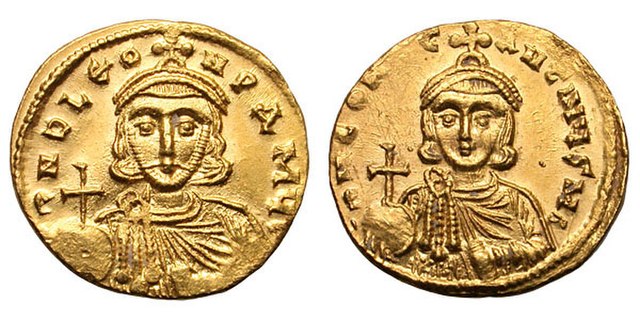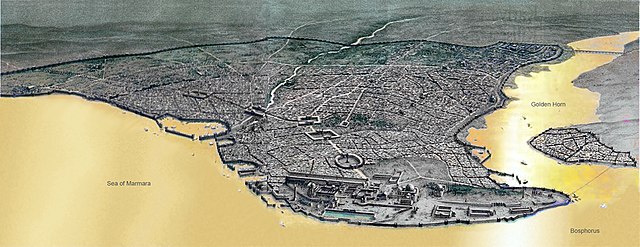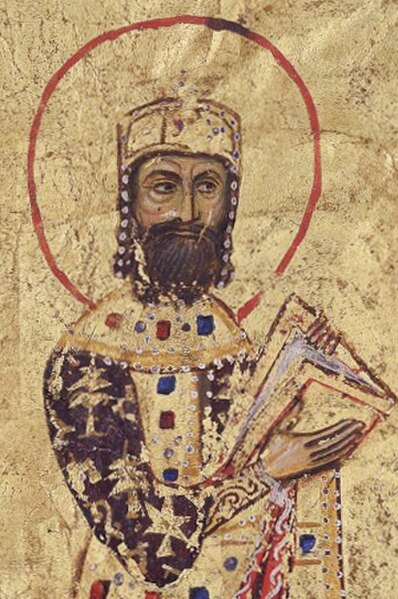History of the Mediterranean region
The history of the Mediterranean region and of the cultures and people of the Mediterranean Basin is important for understanding the origin and development of the Mesopotamian, Egyptian, Canaanite, Phoenician, Hebrew, Carthaginian, Minoan, Greek, Persian, Illyrian, Thracian, Etruscan, Iberian, Roman, Byzantine, Bulgarian, Arab, Berber, Ottoman, Christian and Islamic cultures. The Mediterranean Sea was the central superhighway of transport, trade and cultural exchange between diverse peoples encompassing three continents: Western Asia, North Africa, and Southern Europe.
Bacino del Mediterraneo, dall'Atlante manoscritto del 1582–1584 ca. Biblioteca Nazionale Centrale Vittorio Emanuele II, Rome (cart. naut. 2 – cart. naut 6/1-2).
Slave market in Algiers, c. 1684
Greatest extent of Italian control of the Mediterranean littoral and seas (within green line & dots) in summer/fall 1942. Allied-controlled areas in red.
The Byzantine Empire, also referred to as the Eastern Roman Empire, was the continuation of the Roman Empire centered in Constantinople during Late Antiquity and the Middle Ages. The eastern half of the Empire survived the conditions that caused the fall of the West in the 5th century AD, and continued to exist until the fall of Constantinople to the Ottoman Empire in 1453. During most of its existence, the empire remained the most powerful economic, cultural, and military force in the Mediterranean world. The term "Byzantine Empire" was only coined following the empire's demise; its citizens referred to the polity as the "Roman Empire" and to themselves as "Romans". Due to the imperial seat's move from Rome to Byzantium, the adoption of state Christianity, and the predominance of Greek instead of Latin, modern historians continue to make a distinction between the earlier Roman Empire and the later Byzantine Empire.

Gold solidus of Leo III (left), and his son and heir, Constantine V (right)
Constantinople was the largest and wealthiest city in Europe throughout late antiquity and most of the Middle Ages until the Fourth Crusade in 1204.
The seizure of Edessa (1031) by the Byzantines under George Maniakes and the counterattack by the Seljuk Turks
Alexios I, founder of the Komnenos dynasty







